| |
Branch Office |
Subsidiary Company |
| Status at Law |
Not a separate legal entity.
The foreign company has full responsibility for the actions (and inactions) of its Australian branch. It can sue and be sued for the operations of the branch office. |
A separate, Australian, legal entity.
The subsidiary company has full responsibility for the actions (and inactions) of the Australian business. It can sue and be sued for the operations of the Australian business. |
| Liability |
The foreign company remains liable for the business activities conducted in Australia. |
Liability and risk associated with the Australian business sit with the subsidiary company. |
| Registration |
The foreign company must be registered with ASIC. |
The subsidiary company is incorporated under Australian laws and registered with ASIC. |
| ASIC Registration |
Issued with a unique, 9 digit, ARBN (Australian Registered Body Number). |
Issued with a unique, 9 digit, ACN (Australian Company Number). |
| ABN |
A foreign company wishing to conduct business in Australia must apply for an ABN (Australian Business Number).
ABN’s are issued by the Australian Tax Office (ATO). |
A subsidiary company wishing to conduct business in Australia must apply for an ABN (Australian Business Number).
ABN’s are issued by the Australian Tax Office (ATO). |
| Name |
A foreign company must register its name with ASIC as it appears on the foreign company’s existing certificate of incorporation. The name cannot be identical to the name of an existing company or business in Australia. |
The subsidiary company can use any company name that is not identical to an existing company or business name in Australia. |
| Registered Office
Address |
The foreign company must have a registered office in Australia where correspondence can be sent. A registered office does not need to be the foreign company’s place of business. The address cannot be a post office box. |
The subsidiary company must have a registered office in Australia where correspondence can be sent. A registered office does not need to be the subsidiary company’s place of business. The address cannot be a post office box. |
| Financial Reporting
Obligations |
The foreign company is required to file annual financial reports with ASIC including balance sheet, profit and loss statement, cash flow statement and any other document the foreign company is required to prepare in its country of origin. |
Large proprietary companies must prepare and lodge a financial report and a director’s report for each financial year.
Small proprietary companies generally do not have to lodge financial reports. |
| Tax |
A foreign company is generally taxed as separate entity in Australia. Specialist tax advice is recommended prior to establishment. |
Is an Australian resident for tax purposes and taxed on all income regardless of the source at the fixed Australian company tax rate of 30%. Specialist tax advice is recommended prior to incorporation. |
| Tax File Number |
Must register for a TFN (Australian Tax File Number) |
Must register for a TFN (Australian Tax File Number) |
| Tax Returns |
Must lodge a company tax return each year with the ATO. |
Must lodge a company tax return each year with the ATO. |
| GST |
Must register for Goods and Services Tax (GST) if gross income exceeds $75,000. |
Must register for Goods and Services Tax (GST) if gross income exceeds $75,000. |
| Minimum Capital Requirements |
None. |
None. |
| Local Agent |
A foreign company must appoint a local agent who must be an individual or an Australian company who is resident in Australia. |
Not required (but a resident director is – see below) |
| Directors |
Not applicable. |
At least one director must be Australian resident (ordinarily reside in Australia). |
| Secretary |
Not applicable. |
Not required but if the subsidiary company elects to have a Company Secretary, then that person must be Australian resident. |
| Shareholders |
Not applicable. |
Must have at least one shareholder who does not need to be an Australian resident. Cannot have more than 50 shareholders. Can be 100% owned by a foreign company. |



























